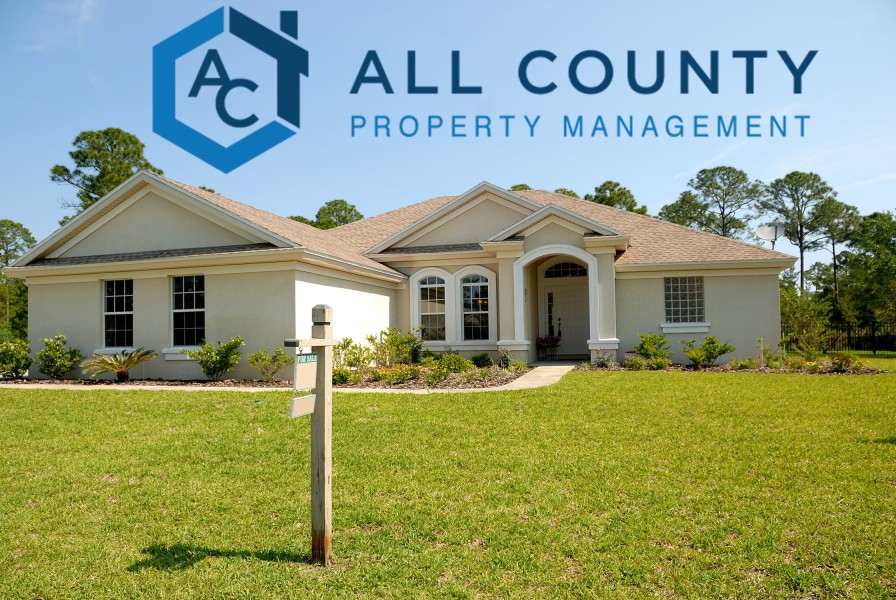Residential Property Management in Wesley Chapel, FL
Serving Wesley Chapel, FL & surrounding areas.
We're a full-service property management company.
At All County Alliance, you get the best return on your property investment. We’ll help you avoid problems that could cost you money down the road. We understand just how important your real-estate investment is to your financial well-being. That is exactly why we focus exclusively on residential property management and nothing else.
Learn more
We provide property owners the following benefits:
What we do best.
Our expertise makes it easy.

Residential Property Management
We believe in doing one thing and doing it right, and we specialize in Residential Property Management. ``We Rent Homes!``

Outstanding Communication
We go out of our way to make sure that you are always informed about the status of your property. You get to decide how often you hear from us.

Transparent Pricing
Our fee structure is pretty straightforward. We make money when you make money, and we don't up charge for maintenance.
Why partner with us?
See why it just makes sense.

Get a better return on investment
Real-Estate investment is all about the long-term payoff. If you have a rental property then you want to be sure you are making as much money as you could from it.
Our experts evaluate your property to get you the best rental rates for your property. We place quality tenants that will take care of the property, and we know all of the rules and regulations you need to comply with so that you avoid costly legal issues in the future.
Effective & transparent property management
All County has been improving and refining our property management practices since 1990. We are clear and upfront about our fees, and we will never charge you for maintenance.
Our property managers will always go above and beyond your expectations to make sure that your property is cared for, and that you know exactly what is going on with your property at any given moment.


Get paired with a knowledgeable professional
If you really want to make the most money from your property in the long run then hiring a property manager is a must. When you hire All County to manage your property you get paired with a knowledgeable property management expert to help you maximize your ROI while avoiding the headaches of trying to do it yourself.
Get in touchTestimonials
View all testimonialsSee what people say about us
"The service is excellent and they always follow up in a timely manner. If you are looking for a property management company that will help you make your rental properties..."
"All County's entire team delivers a service that is professional and personalized, making you feel like yours is the only property that they are managing. They have exceeded all..."
"As a first-time owner of a rental, I was very pleased with how friendly the staff was and how detailed were they when explaining all the details of the..."
"Owning rental property is a breeze with All County with how they take care of any issues that arise. Thanks, guys for the great service..."
"I have been with All County Heartland Property Mgmt for about 6 to 7 months since I closed on a package of 5 singles in OKC. I interviewed a number My experience has been very good so far and I will recommend Bill and his company for anyone who is looking for a good, honest PM in OKC area. They..."
Available Rentals
View all rentalsSee what's available for rent
For rent
Single Family
4809 Diamonds Palm Loop
Wesley Chapel, FL 33543
Avaibility: 6/1/2024
Our story
Learn about who we are
Setting The Standards In Property Management
All County Alliance Property Management is committed to providing you with a hassle and stress free option to owning income property. We take pride in providing you with property management and leasing services. Our company ensure that we find the optimal tenant to place into your property. We save you time and money by handling tenant placement, evictions, marketing and so much more.
If you want to maximize your income profits, ensure your property is well maintained and make the most from your property, contact us today, and we will get you started.
We at All County Alliance Property Management serve areas in and around Tampa Bay, including Lutz, Wesley Chapel, Land O’ Lakes, Lake Magdalene, University, Cheval, Tampa and so much more.
Let us give you peace of mind
Get in touch
Looking to rent your home?
Let All County Alliance professionally manage your home today.
Looking for a rental?
Click to see all of our available rentals.
Looking for help?
We are happy to help you and answer your questions.
